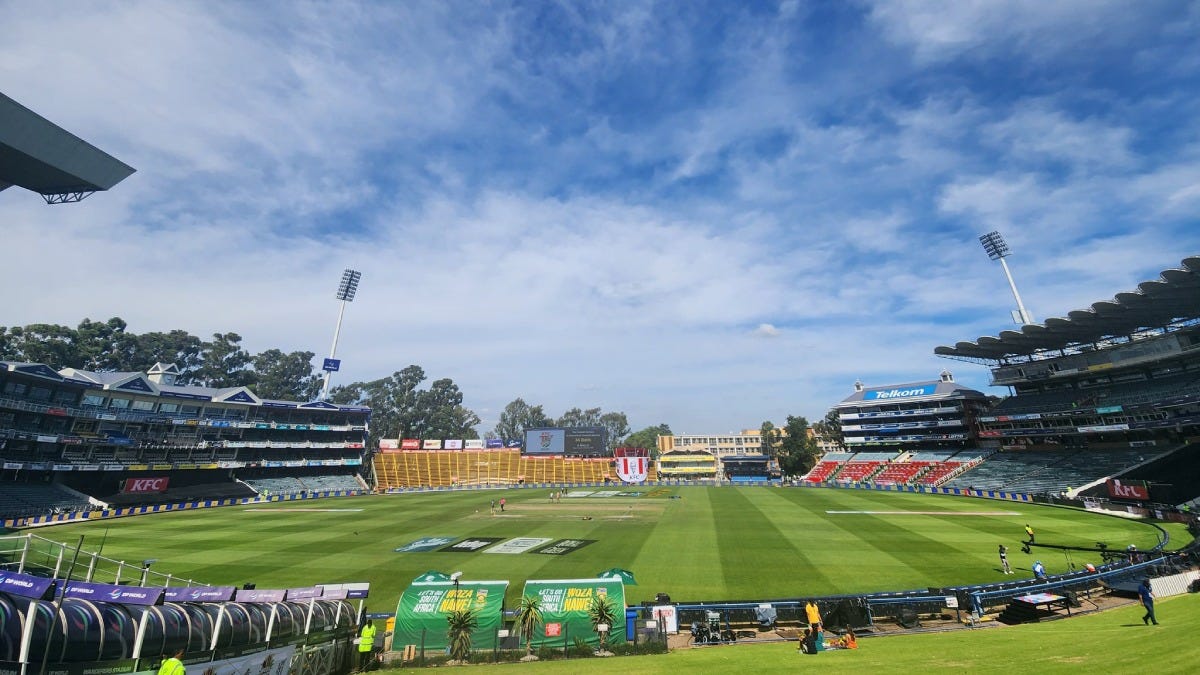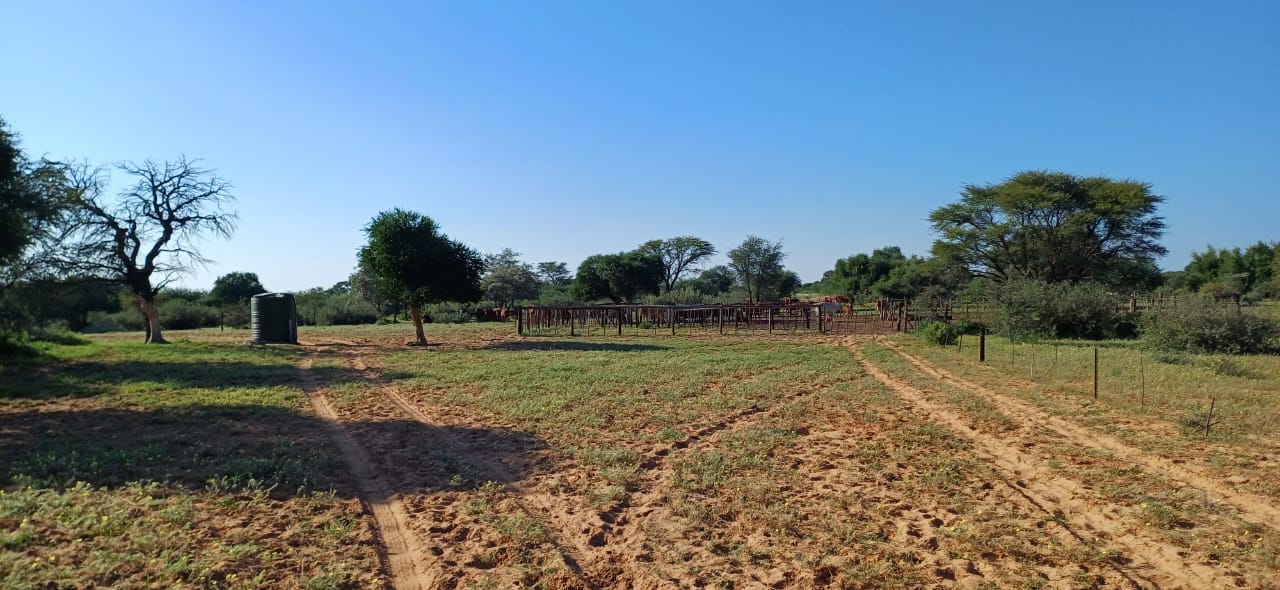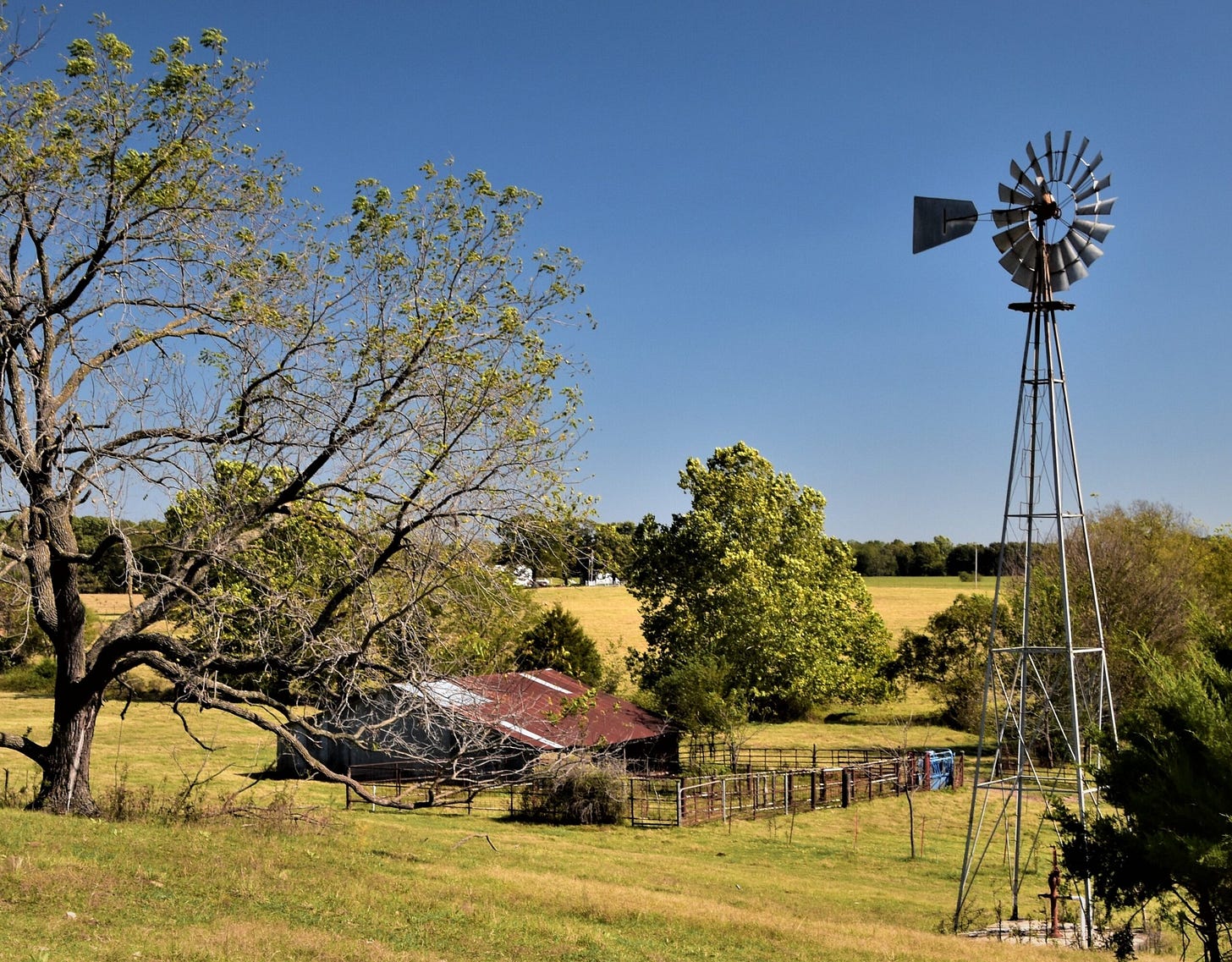The first half (posted last week) can be found here
Blerrie Fockin Part Two
Eighteen years have passed. The track is now a proper gravel road, and it continues with some nonchalance beyond duPreez and Sons. The thatched homestead is watered by sprinklers in the summer and half obscured by tall trees and honeysuckle creeper. The tractor shed has become a workshop, with low asbestos roofing painted green, and a concrete corral for engines waiting for parts. Inside, Jaap runs the repair side of the business, while Koos takes it easy; he married the youngest Prinsloo girl, whose father has given him the sole agency for selling John Deere Agricultural. Koos wears a sharp suit and travels all over the country, but on a Sunday, he will put on overalls to get his arms covered in axle grease. As long as his father-in-law, Gerrit Prinsloo, isn’t about. Koos and Amy Prinsloo live in the suburbs of Pretoria, in a mock Cape Dutch mansion. Their servants all wear white with matching caps and quiet shoes.
Kleinpiet lives on the farm but works in his bespoke shirts with expanding gold cuffs in his builders’ merchant warehouses on the edge of town. That way, he keeps control of everyone, charging the Prinsloos storage for tractors and parts, taking a percentage of sales, and entertaining the new contractors who come for braais in the summer, with wives in stretch belts and wide skirts. Farmers are flattered to mix with the contractors; the contractors like to be in the know with the builders’ merchant. Kleinpiet is generous with discounts in return for sole and exclusive orders. If they so much as sniff at another supplier, that’s it. No fockin’ trade. Since his range of stock is not limited to building supplies but has farm fencing, dip, harrows, ploughs, seed, and fertilizer too, nobody risks falling out with duPreez. Kleinpiet is now unable to spend the money he makes.
He has never married or considered a woman. His responsibility brought with it not only a tribe of useless dependents but the need for a sjambok mind to keep them on the road of respectability. In the depths of night, only one insecurity visits him. Thoughts of a woman implied things he couldn’t plan for, and being ahead in every game is all he knows. His passion is still the farm and the garden. Water features, little bridges, arbours, pergolas; every year a new enterprise, and the whole field in front of the house has surrendered to statuary. He has never considered moving. It is the evidence of his origins that reminds him daily of his triumph. A new smart house behind the jacarandas would make him just like anybody else, just like that useless Koos, in fact. He buys the mielies for roasting on the braai, and the more he pays for them, the better he likes it.
Oubaas has never fully adjusted. Theoretically, he is in charge of stores, but not the paperwork. Stacking and shunting is what he does, just like a kaffir, only he stacks knowing why, that’s the diff’rence. He is not invited to the parties because Kleinpiet will never let him near a drink. The parties Oubaas can do without, posh buggers talking about blerrie politics or going what they call “abroad.” There’s only one kind of broad he’d have a go at. That was another reason to keep him out of circulation.
Oubaas’s views on blerrie kaffirs have not modified, although his treatment of them has, under Kleinpiet’s eye and after an assault that had him in police custody long enough to teach him a lesson but not long enough to reach the press. Kleinpiet paid the police to drop charges, and just in case, he had his own doctor stitch up the goatherd’s gash, poultice his eye, and then looked after him on the farm until the scar was almost gone. Oubaas had to face that insolent boy eating oranges and playing with his own grandsons every day for three weeks, and see him go in new clothes, with money for a month. Kleinpiet is a master of humiliation, but he uses it discerningly.
Oubaas rankles, like a low fire sparked by a gust of wind, because he half thinks all this wealth was his achievement. Fathered the buggers, did’n he? Blerrie good genes, that’s what started them off. He has grasped that Kleinpiet is ashamed of any suggestion of snoep, or any compromise with cash. Oubaas retaliates by buying cheaply whenever he can, and gets a thrill sidling into sales or auctions. “Second-hand” is like the bell of the ice cream cart, “factory rejects” the big dipper, especially if he succeeds in hiding a concrete garden ornament among the sharp stone-carved ones, or mixes steel among the silver. Quietly, he sets traps for that fockin stuck-up son who thinks he’s done it all alone. He substitutes substandard parts, and sends any funeral a wreath of plastic flowers in the name of the company.
Jacob notices everything but keeps his peace, unless Oubaas stretches a hand anywhere near his wife. Jacob and Mavis have grown with the fortune: a new three-room hut on the farm, a donkey cart for Sundays, and two daughters in plaits so tight they squint. His girls go to school with satchels, in blue-check uniforms and sparkling white socks against their slim brown legs. Mavis has long discarded multi-rags for uniforms with matching aprons, which she chooses herself from the stock at the works; not white like the Prinsloo servants but flowered or striped. Kleinpiet knows there is a diff’rence between having money and flashing it like a sharper’s card. A man with money needs dignity to deserve it.
Jacob has to assist dignity sometimes; having been taught to drive tractors, he is occasionally sent to fetch the car from the garage, while Kleinpiet closes some deal at leisure, on upholstered chairs among the bougainvillaea. The stoep is now a conservatory. Jacob opens doors and runs to open gates, but only as far as the road. Teach him to drive proper and get a licence, and the bugger would probably get ideas to match. Kleinpiet could replace Jacob, but Jacob and Mavis witnessed his growth and many things bind them together, not least the control of his father.
*
One of the deals incubated was the purchase of the car; not one of your run-of-the-mill autos with a sunroof and a sound system, but the car to silence talk. Kleinpiet had been fished by Warren Smythe, an urbane Engelse, over a period of months. Warren was no amateur salesman with glossy brochures or a slick briefcase. Warren dressed in casual corduroy and canvas jackets with enough pockets for any kind of bait. He had taken to dropping in for a beer, with hints of deals being struck elsewhere, of no interest really, just gossip, and by the way, “ever thought of playing golf, we could have a round” kind of talk. He never stayed over long but pitched his length to the wicket defended by Kleinpiet, and laughed when he was returned. Kleinpiet had never really known anyone like Warren. He didn’t seem to want anything, which left Kleinpiet wanting knowledge about him.
Under hinted questions, Warren admitted that he was in sales of some kind, but dropped it. He talked about Stetson hats (which nobody wanted anymore) and the sole agency for a number of Savile Row tailors (the sort of clothes that looked good in the Tatler, but no blerrie use in Africa). But how can you make any kind of living by selling what nobody wants? Kleinpiet insisted. Well, Warren sold in the Far East what millionaires there wanted, but who wants to live among slitty-eyed ants in the heat? The answer was to sell there and collect here. “Another Castle Lager on offer?” So, what did the millionaires want?
“The best fucking car in the world.”
Which was?
Warren looked perplexed, as though the question was rhetorical.
“You’re having me on? Of course you know, come off it, man.” He didn’t wait before adding, “The Rolls is not everybody’s car, but if it’s what you want, you can’t look at another.”
“Ah’ve never seen one. Wherejoo see them?”
“Well, there are only five in the country, and I know where they all are, and unfortunately, none are around here.”
“So what makes them so special?”
“Engines, for a start. They make aeroplane engines for every—”
“Ja, but for a car?”
“Think about the precision, the reliability, no risks, but even that can’t convey what you see when you lift the bonnet... simply the most perfect engine ever built.”
“And looks? The body?”
“Well, not flash, a bit staid, really.”
“Whatjoo mean ‘staid’?” Kleinpiet didn’t know the word, but he already sniffed the quality.
“Well, probably wouldn’t appeal to you, sleek, but in an understated way, long in front, and even the mascot is hand-carved in silver, which of course would make it a target for theft around here. It’s a car for the effortless drive to Monte Carlo or St. Tropez, sweeping those bends like a planet sweeps its orbit, like it knows no other way; not really for corrugations and dust.”
“So ut’d get wrecked on these roads?”
“My dear Kleinpiet, nothing can wreck a Rolls-Royce. It’s guaranteed for years, parts and labour, double sealed and air-conditioned so never any dust, not in the engine, not in the cab.”
“Got a photo?”
“Not on me. Anybody who wants one knows what they look like. I don’t sell. I just process orders.”
“So how much?”
“A very great deal of money.”
“Shit, jou, Spit ut out.”
Warren spat it out, and Kleinpiet swallowed it. Tentatively, and depending on the photo and the guarantees. After those were carried about in his shirt breast pocket for a week and they were ragged with folding, he ordered.
“You mean I can only have black?”
“Black or black. It’s all they’re exporting at the moment.”
“These donner Engelse don’t want to sell, isn it?”
“They don’t need to.”
It would take three months, Southampton to Durban docks, and Warren would be pleased to collect.
“Maybe I come wuth?”
“Even better, a long drive to fully relish and get used to her.”
He made it sound like a woman.
The Rolls-Royce purred like a contented cat, rolling its shoulders under the chamois leather, and Kleinpiet, looking in the mirror of its fathomless beauty, saw himself beautiful, not just rich.
He joined the golf club at Warren’s invitation. He went to the races, arriving almost last, followed by an employee in a Ford Prefect. Though he hated boring cricket and the people who played it, he went to matches at the Wanderers’ Stadium, where the car park was paved and the press cameras were on stilts and panned across the arrivals. He watched the cameras watching the cricket, and dipping their lenses in homage over his car. He never drove her to rugby because the muddy grass would splash her ankles.
At the works she would lounge at the door. Business colleagues were met at their cars and walked past her, Kleinpiet enjoying their hesitation and swivelling necks. She was spectacular. Fockin’ spectacular. Black? Of course, black. P’raps the Engelse knew a thing or two about style. Warren was his saviour, his truest friend. He took care not to show it, except by putting people and things his way.
Sooner or later, Kleinpiet would be asked to join the Masons, or more likely, the administration as some kind of consultant. Meanwhile, he enjoyed the deferential removal of hats, the greenness of his lawn, and his new taste for whisky and shirts in subtle checks. Supplicants came at all times of day to seek his opinions on marriage alliances, new seeds treated with fertilizer, or any pretext that might get them invited to his now-famous braais. Kleinpiet’s parties were where fortunes began.
“Ut’s not lark a lottery. You get a tickut awready marked ‘winner.’’
So he wasn’t really surprised when a car drove up one Sunday, though it was early and he’d had a night of heavy drinking. Kleinpiet clomped down the stairs out onto the drive. The car wasn’t familiar; he didn’t recognise the driver, so he waited for the reversal of a mountainous backside, which straightened up to add a Hawaiian shirt covered in parrots. It wasn’t until the man held out a hand like a melon that Kleinpiet recognised Skunk Potgieter. Skunk was the Chief Konstable in the local police.
“Ag, man. Sorry to get you up. Ah thought it’s best to come alone.”
“You in trouble, Skunk?”
“Ja, inaway. Ah have to show you something. Ah need your input, as they say. Can you come wuth?”
“Of course, anything Ah can do. Do Ah need a jacket or paper or anything? How far are we going?”
“Ag, jus a coupla miles, nowhere formal.”
Kleinpiet got into Skunk’s car, recoiling from the empty cigarette packets, the crushed Pepsi tins, and the crumbs he brushed from the passenger seat. Skunk watched him with indulgence, giving him time to register the misfortune of others, and then started the engine. They bumped off down the farm track, which Kleinpiet realised was not as well graded as his own car had fooled him into thinking. He would have to fix that. Skunk drove in silence with his freckled ham hands throttling the steering wheel. As they turned off onto a grass cart track and coasted over waves of spiky rushes, Kleinpiet lost patience.
“Hell, man, Ah’m not a blerrie midwahf. Where th’ell are you taking me?” He was still intent upon the answer when the car stopped. When he looked ahead, he saw.
Out of a collapsed hut, the rear of his car nosed out of a burrow of dirty thatch and tumbled pumpkins. It was tightly wedged between cracked mud walls, festooned like a wild boar suddenly blinking in light. Kleinpiet was silent. There was no sign of life from the three similar huts. After a decent interval, Skunk spoke. “Ah thought you’d rather deal wuth this in private.”
Kleinpiet got out in slow motion.
“An Ah didn think you’d want to lay a charge,” added Skunk helpfully.
“No,” said Kleinpiet, “when I find who did ut, I’ll jus cut his throat.”
Skunk forestalled Kleinpiet’s attempt to squeeze into the narrow gap between mud and steel. “Yus, let me.” Skunk put his great arms on the top of the wall and pulled it away, showering them both with rotted thatch. With a muffled rhythm, another pumpkin rolled slowly from the roof, hit a stone and broke open, grinning with seeds. Kleinpiet kicked it savagely.
“He’s still insahd,” shouted Skunk from the darkness of the hut.
Kleinpiet pushed the constable out of the way, yanked the door open, and pulled out the sleeping driver, dragging him into the light, unable to kick just yet.
“Fock you, man.” He jerked the lolling head upward. “Fockin’ hell! Jacob!”
Jacob smiled. His head hung, but the smile went on, and on, even after two more kicks. He stood, just smiling. The smile defeated Kleinpiet.
“You know Ah’m going to kill you.”
“Ja, baas. Kill me. You can do whatever you want, now.”
“Fock you. Whatjoo mean now?”
“You can do it, baas. Now I can say I drived a Royce-Rolls. I can agree, baas. Man, that Royce, she rolls.” Jacob was shaking his head, still disbelieving, as Kleinpiet thrust him at Skunk.
“Take him home. No charges.”
Skunk understood, but maybe not the part that might have had to do with Oubaas’s treatment of Mavis. He didn’t know about all that; before his time.
*
Two months later, the Rolls developed a cough. She didn’t start with the first flick of the ignition key—Kleinpiet had to nudge her twice. When she came to life, it was with a hoarse throat and slightly clattering bones. He lifted the bonnet, and instead of the silent steel head, as still as moonlight on a lake, she shivered. Putting her into reverse made her shiver more. He was nervous about exposing her, but gently eased her out into the sun, where she sighed and expired with a death rattle. No shaking or turning of her key would revive her. He phoned Warren.
“The focker won’t start.”
“What ’d’ya mean won’t start?”
“Dood, man, dood.”
“She’s got petrol?”
“Yus! You think I starve her?”
“It’s an oversight anyone can make. Have you checked?”
The gauge said three-quarters full.
Warren came out to the farm and tried himself.
Then he made a long-distance call.
A week later, Warren delivered two engineers from England, who had flown with a full set of tools and parts that, in overweight, had doubled the fares. They changed into blue overalls with the RR lady on the back and took command of the tractor shed, cleared for surgery, closing the doors behind them. Meals were sent to the door on trays. Spanners were heard to meet the floor, the floor jack was heard to grind, and the lathe was heard to spin.
“Blerrie fockers are ashamed,” said Kleinpiet to no one in particular.
Three days later, the doors were opened and she beamed like new teeth. The engineers waited for Kleinpiet to inspect her and stood back while he circumnavigated her flanks and peered at her tires, not quite sure where to direct his critical assessment. He got in and tried the key. She purred silently, as before. He turned her off. He wasn’t going to give these stuck-up Engelse any pleasure in their achievement. Warren waited outside.
“So, you gonna tell me? What was wrong?”
One engineer turned and fetched a small drum. He placed it silently at Kleinpiet’s feet. It conveyed nothing to him.
“So wot’s thus?”
“It’s diesel, sir. This engine runs on petrol. Someone filled it with diesel. That’s what we drained before we stripped down every part.” It took nearly half a minute for Kleinpiet to react. He almost howled.
“Ah’ll kill him. Ah’ll fucking kill him.”
“Thank you, sir, if you’ll remember that, she’ll give you no further trouble.”
Warren returned them to the airport.
Alone with his throbbing head, Kleinpiet heard only the sound of echoing laughter.
Glossary
donner Englelse: Damned Englishman
dood: dead
kaffir; Originally a citizen of Cafreria- indigenous, but later a term of contempt,
sjambok: raw hide whip.
snoep: tight-fisted.











Your vivid narrative is very interesting, Philippa Rees